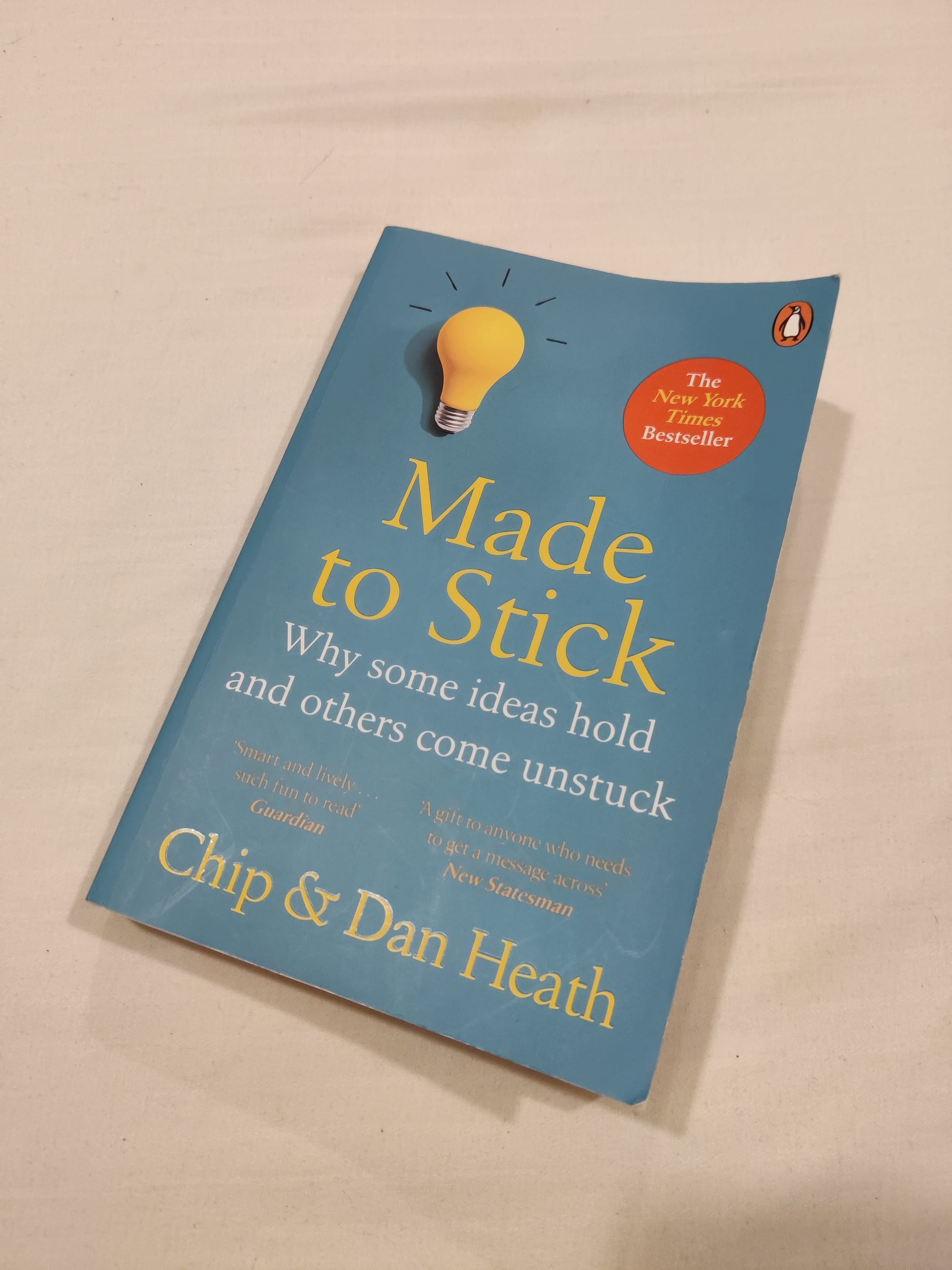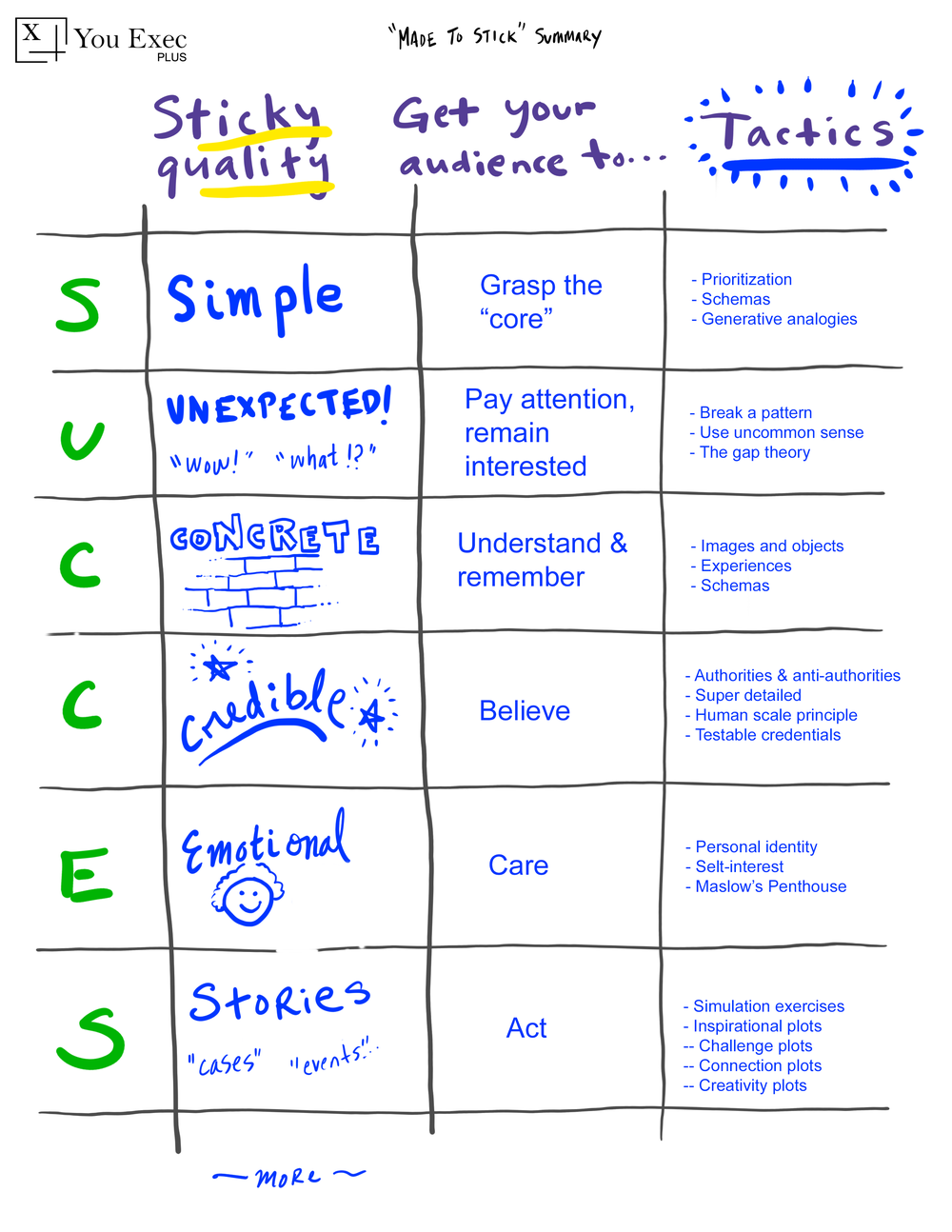Made To Stick - A Book Review
It is easier to make ideas sticky than to make those that don't.

I’ve always been fascinated with learning design and how to craft out unforgettable learning experiences. Analogies, metaphors, games, acronyms, are among the many ways I use to design an engaging learning experience. Then I came across this book through Blinkist, a book summary subscription app. This book, as titled in the post, Made to Stick, is written by Chip and Dan Heath.
I was so excited as I was reading it as I felt very validated and the book’s content are revealed in such a timely manner with my real life that it must be some crazy coincidence. Imagine brainstorming about principles of storytelling, only to read the next section of the book talking about the 3 principles of a good story.
Below, I’ll share my thoughts and a short summary of the book in hopes I may help any learning designers out there. Actually, if you are one, I hope you’d give it a read!
The key to a successful sticky idea is SUCCESs.
The book led with a simple and, I guess, sticky framework acronym to craft an idea that sticks: SUCCESs: Simple, Unexpected, Concrete, Credible, Emotional, Stories.
Simple: Keeping your ideas simple by keeping and hitting a core message or a core intention.
Unexpected: Using unexpected events or expectations as a learning moment. Like hitting someone with a surprising punch line.
Concrete: Ideas should be based on a concept that is real to the audience. Using things like analogies enables easier transitions between ideas as there is a base/prior experience to connect it to, rather than having to imagine something vague.
Credible: Sticky ideas can be stuck on by either using credible source (person, events, etc), or making people use their own self to prove something. Enabling your audience to test/experience an idea out for themselves weaves it even deeper into their memories, especially if it allows them to unlearn and relearn a new concept.
Emotional: Triggering people’s emotions can also help make an idea sticky.
Stories: Using stories to share concepts enables your audience to envision a mental image of the concept you are trying to share.

Can a sticky idea be unstuck?
Apparently, no!
But it could be distracted by another sticky idea!
BONUS: Barriers to SUCCESs in delivering a good strategy talk
- The Curse of Knowledge - the inclination to disemminate info that is high level and abstract. Try using stories to simplify and share exemplars of envisioned execution of the strategy.
- Decision Paralysis - When a given strategy is great, but causes decision paralysis when a good option is competing against another good option. E.g. Efficiency vs Experimentation. Eliminate this possibility by picking a clear true north or a clear "no" at least when it comes to the need to choose.
- Lack of a common language - When everyone has a different definition for the same term in the given comms, trouble brews. Using concrete language will enable everyone to be on the same page and enable more constructive disagreement.
Why I love this book?
The subsequent chapters then dives into different use cases to elaborate further on each of the concepts in the SUCCESs framework, thus modelling its own framework by sharing stories, concrete examples, and credible use cases. There are use cases which may even be very familiar to you as you have had this (probably untrue) sticky idea stuck on you!
The authors made the model rather transferable by using different scenarios from different fields. From the expected marketing industry, to teaching, to even commands in war. It also clarifies the Maslow hierarchy as not a ladder to be climbed, but pursued simultaneously.
At the end of the book, it again reiterates the framework. Repetition (not in the model) may not make ideas sticky, but might make ideas stick. Plus, R does not really fit in the sexy acronym that is ‘SUCCESs’. LOL. So, I can understand why R wasnt part of the model.
This whole book does provide some unexpected moments. One being the revelation that making ideas sticky can be easier. And the unforgettable fact that ideas that don't stick takes more creativity than ideas that do, as there is no structure or consistency to why they don’t get seared into your mind as much as a simple sticky idea does.
TL;DR:
Made to Stick by Chip and Dan Heath is a gem for anyone trying to be uniquely creative and craft new unforgettable ideas or concepts! You’ll realise and hopefully come to terms with the idea that you are not uniquely creative and don’t need to be. Get the book and enjoy it for yourself!
